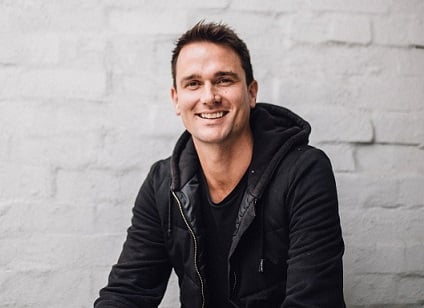Unaffordable housing is causing Kiwis and Aussies to become permanent renters. So, what’s being done to better support renters and improve renting conditions?

urjoint is a subscription based start-up that gives renters the benefits of Airbnb but at long term prices. Founded by Kiwi Nick Teulon, who started the company in Melbourne, the business is rethinking traditional ways of managing property. NZ Adviser discusses the business model with Teulon, and what gets him out of bed in the morning.
Tell us a bit about your company? What makes you different?
urjoint (soon to be renamed) is rental solution where renters pay one bill a month that covers everything including utilities and broadband. We’re removing the two main friction points in renting with; instant applications and no contracts.
On the property owner side, we sign 3-5 year lease agreements and guarantee rent regardless of market conditions or vacancies giving investors peace of mind.
Once our platform is fully operational renters will be able to view a 360 degree video of property and instantly secure it once identity, credit and reputational checks are completed through API integrations with respective partners. Under the current model it can take up to four weeks to secure a rental, with us it will be less than four minutes.
Why did you decide to get into the rental market?
Firstly, it’s a massive market and there is room for multiple players and business models but ultimately we feel renters are getting a very poor experience under the status quo and we’ve got a burning desire to change that.
What do you think is the major difference between the New Zealand and the Australian rental markets?
Currently, property investors and property managers aren’t doing a lot more than the bare minimum. If the industry doesn’t evolve to be more customer-centric, governments will step in and we are already seeing signs of that in New Zealand and Australia.
Do you see potential for expansion into New Zealand, and if so, which city would you start out in?
As a born and raised Kiwi, I would love to have a New Zealand office at some point. Auckland would be a logical launch city as it is facing many of the same problems as Sydney and Melbourne.
More and more Millennials and Gen Zs can’t afford property and many will remain renters for life, how does your company benefit this group?
The new world currency is freedom and flexibility. Owning a home with a 30 year mortgage offers no such freedom. As remote working and the ability to earn $100k+ on the internet becomes more mainstream, the benefits of being a renter under a subscription model begin to look very attractive. Wealth can still be created through other asset classes - the family home doesn’t necessarily need to be your retirement nest egg.
What are the major challenges for this group?
While there are a lot of benefits to the subscription economy, the down side is it promotes credit card debt. As there is a shift away from property ownership for wealth creation, Millennials and Gen Z will need to become better educated in managing finances and growing wealth through other asset classes. During my 20s I invested my savings into New Zealand and Australian Private Equity funds which have outperformed the property market.
Europe has very different attitudes to property, and it’s also common for families to have decade long leases and rent control. How can Australia and New Zealand better support renters through policy changes?
Policy will naturally evolve in this area as a bigger percentage of the voting population become renters. Both sides of the political spectrum will have no choice other than to start implementing renter friendly policy. My thoughts are smarter business models can incentivise property managers to start doing this immediately. There are more ways to commercialise a rental property than just the rent roll.
What gets you out of bed in the morning?
Every day I have meetings with the smartest people in their respective fields. This intellectual stimulation is very exciting and I am lucky to be in such a position.
What’s the five-year plan for the business?
Our goal is 100k properties and 250k renters which is the size of a small city. Because we manage all the utilities and broadband, we’re essentially building a virtual city. We want to be the cleanest, greenest and most sustainable “city” in Australasia.



